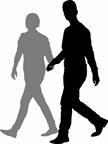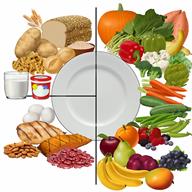ThisisPatientEngagementcontent
Preventing Health Risks of Being Overweight
Learn more about our Patient Engagement products now! Turn your patients into active participants in their healthcare by giving them easy access to the same evidence-based information you trust – but delivered in an easy-to-understand format.
Staying at a healthy body weight is important to your overall health. Your healthy body weight depends on your age, sex, and height. If you're overweight, you may be at risk for health problems.
You can make changes to your diet and daily life to prevent these risks. You may want to work with a health care provider or an expert in healthy eating called a dietitian to make these changes.

Nutrition

Lifestyle
This information is not intended to replace advice given to you by your health care provider. Make sure you discuss any questions you have with your health care provider.
Cookies are used by this site. To decline or learn more, visit our cookie notice.
Copyright © 2025 Elsevier, its licensors, and contributors. All rights are reserved, including those for text and data mining, AI training, and similar technologies.